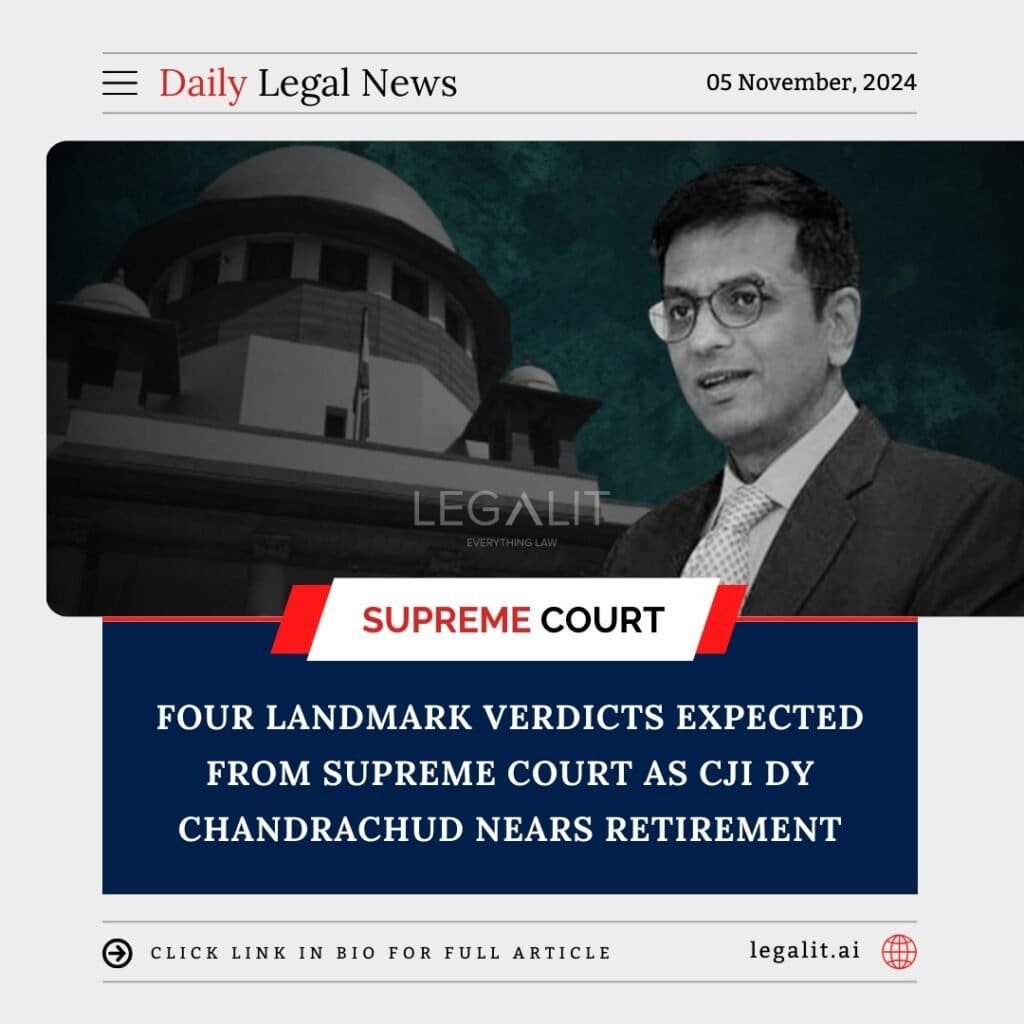
As Chief Justice of India DY Chandrachud prepares to demit office, the Supreme Court is expected to deliver four significant rulings this week, each addressing pivotal issues with far-reaching legal and social implications.
Background
These anticipated verdicts encompass topics such as minority rights, property redistribution, industrial regulation, and citizenship. Each decision has been keenly awaited due to the profound impact they could have on public policy and constitutional interpretation.
Key Cases
- Aligarh Muslim University (AMU) Minority Status: The Supreme Court will clarify whether AMU is entitled to minority status under Article 30. The ruling is expected to address complex issues related to educational autonomy and minority rights, providing guidance on the legal framework governing institutions established by religious minorities.
- Regulation of Industrial Liquor: The court’s nine-judge bench will decide on whether the regulation of industrial liquor falls under state or central jurisdiction. This decision will likely influence state revenue frameworks and clarify federal powers in areas intersecting business and public health.
- Assam NRC and Citizenship Act Section 6A: In a ruling that could have significant implications for Assam’s population, the court will examine Section 6A of the Citizenship Act. This section, which addresses the status of immigrants who entered Assam between 1966 and 1971, has been contentious, touching on citizenship, identity, and the rights of long-term residents.
- Redistribution of Wealth via Article 39(b): The bench is expected to address whether the state can requisition private property for redistribution purposes under Article 39(b) of the Constitution. This ruling may reshape interpretations of property rights and state intervention, balancing individual rights with the Directive Principles of State Policy aimed at equitable resource distribution.
Conclusion
These judgments, set to be delivered as CJI Chandrachud concludes his term, will likely be instrumental in shaping future legal discourse in India. The outcomes could reinforce constitutional directives, recalibrate state powers, and redefine citizen rights.